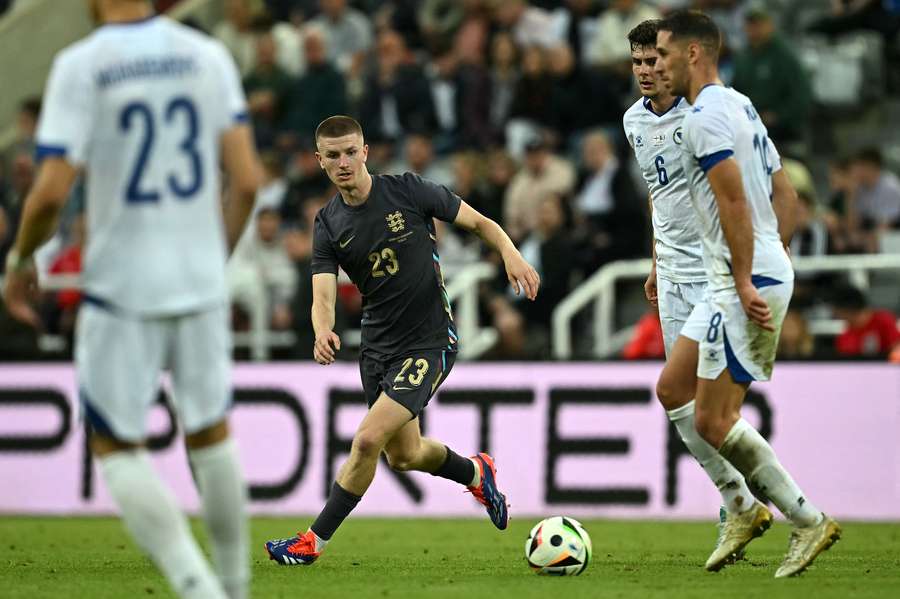On the flipside to the major absentees, a more pleasant surprise is the inclusion of Crystal Palace midfielder Adam Wharton.
The 20-year-old Blackburn Rovers academy product has only been playing Premier League football since arriving in south London in the January transfer window for a fee in the region of £18 million, but his impressive passing ability and forward-thinking approach have quickly caught the eye of Southgate.
Indeed, Wharton started all 15 of Crystal Palace's remaining Premier League fixtures after making his debut as a substitute against Brighton in February.
So impressed has Southgate been that the youngster - who has only played once for the under-21s and senior squad, respectively - has made the final cut, one of four Palace players to do so, making them the most represented club in England's Euros squad.
Here, Flashscore takes a look at some of the most shocking inclusions and omissions from England squads gone by.
Geoff Hurst - 1966
Competition for attacking spots in Alf Ramsey's 1966 squad was fierce. Geoff Hurst, a West Ham striker, only debuted for England four months before the World Cup on home soil.
Initially selected as a backup to the established duo of Jimmy Greaves and Roger Hunt, fate ultimately intervened.
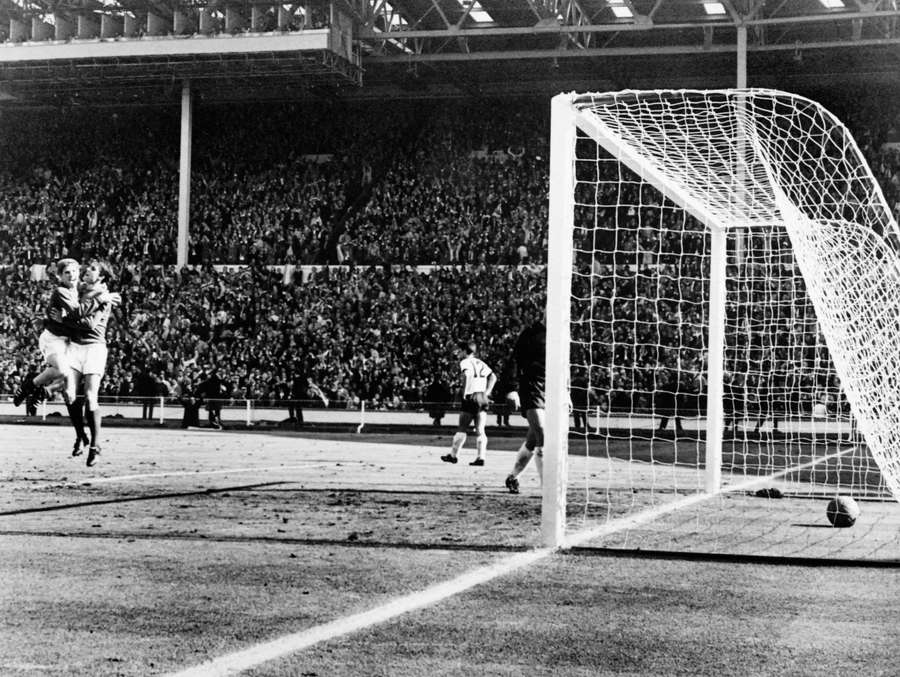
A Greaves injury opened the door for Hurst, and he fully seized his opportunity.
He bagged the winner against Argentina in the quarter-final and etched his name in national legend with a hat-trick in the final, forever a symbol of English footballing triumph.
Paul Gascoigne - 1998
Glenn Hoddle's unconventional approach to squad selection in 1998 bordered on the bizarre.
Players attended pre-arranged "appointments" with the manager, only to discover their World Cup fate in his hotel room. The method backfired spectacularly with Paul Gascoigne - a man many still believed to be one of England's best players on his day, especially after his heroics at Euro 96, albeit not the fittest.
The nation and press were stunned at his omission, but no one was more surprised than the man himself.
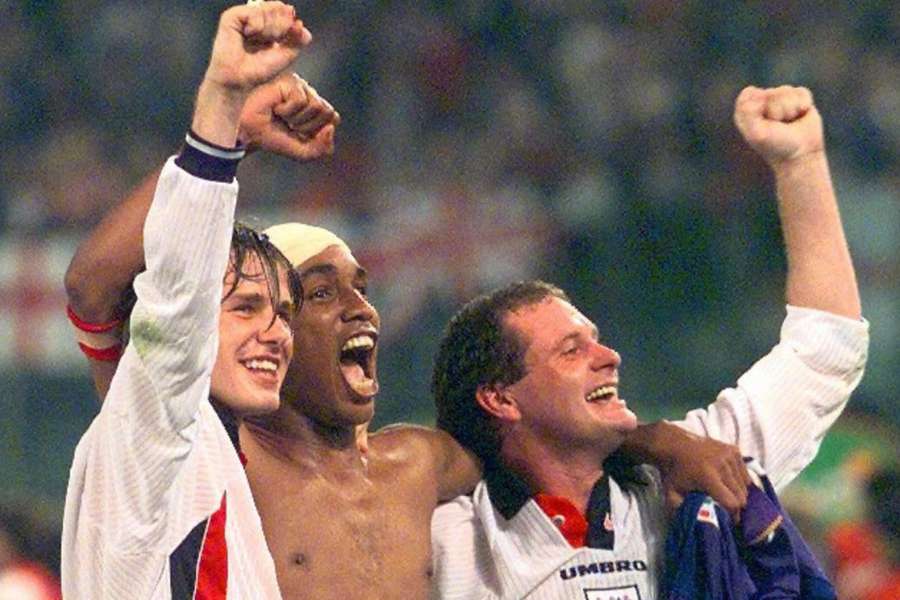
Called in only to be told he was one of the six players cut, Gazza unleashed his fury. His rage reportedly led to a trashed hotel room and a dramatic confrontation with Hoddle, showcasing the midfielder's volatile brilliance, even in disappointment.
"I burst straight into Hoddle's room, where he was talking with Phil Neville and I went ballistic," Gazza later recalled in his autobiography.
"I went to the wardrobe and kicked the door in. Then I overturned the table, smashing a pottery vase. I cut my leg and so there was now blood all over the place. I was about to start smashing all the windows when David Seaman and Paul Ince burst in and managed to restrain me."
Coincidentally, it all happened on the same day that Geri Halliwell left the Spice Girls. Bad day all round.
Theo Walcott - 2006
Theo Walcott's story in 2006 is another oddball moment for the national team, through no fault of his own.
At 17, Walcott was an extremely exciting yet remarkably raw talent with zero Premier League experience when Sven-Goran Eriksson surprised everyone by including him in the World Cup squad for Germany.
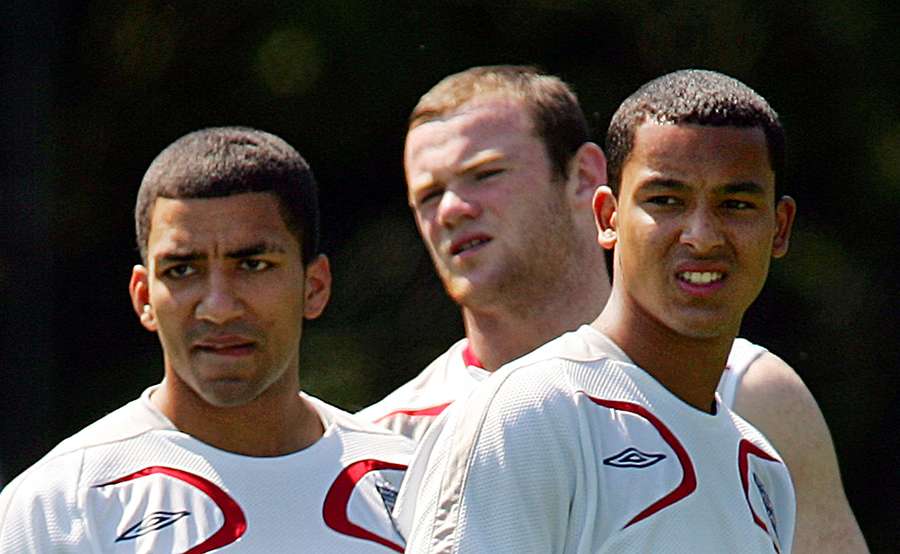
The news came as a shock even to Walcott himself, who had barely seen the ink dry on his new contract with Arsenal after Arsene Wenger had signed him from Southampton.
The call-up signalled Eriksson's faith in young potential, but Walcott's impact on the pitch in Germany was minimal: the young, pacey winger failed to make a single appearance, instead seemingly just making up the numbers as England whimpered out in the quarter-finals, as was tradition at the time.
Theo Walcott - 2010
A tale of two Theos, you could say.
A mere four years later and the story was totally flipped on its head as Fabio Capello cut him from England's preliminary squad ahead of the tournament in South Africa.
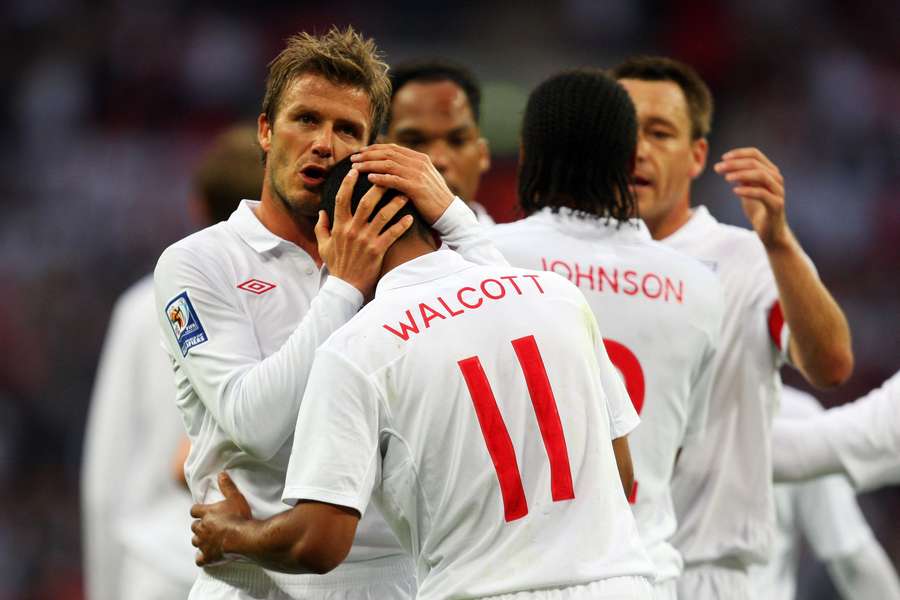
The news again came as a shock but for different reasons; Walcott was now one of the top English performers in the Premier League and his pace was seen as one of the few genuinely fearsome offensive outlets the Three Lions had at their disposal.
The Italian had even labelled him as one of England's "most important players" after a friendly against Egypt that season, which made his ommission from the squad altogether even more surprising.
Even Lionel Messi weighed in on Walcott's omission, branding it a "bad decision" and calling him "one of the most dangerous players I have ever played against".

